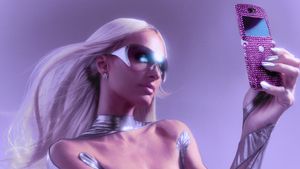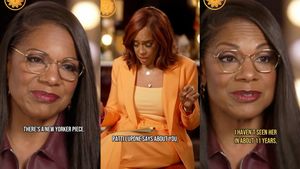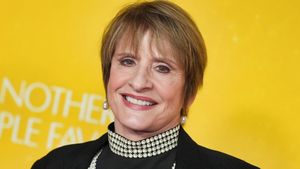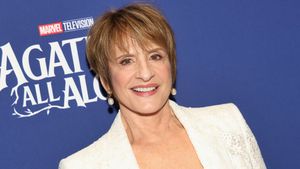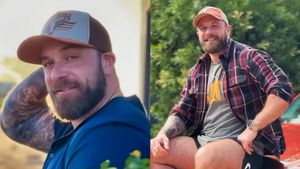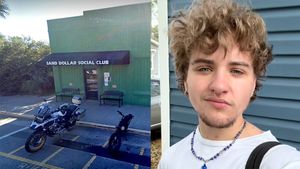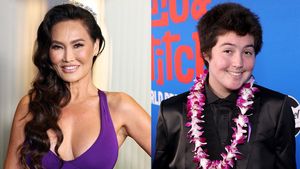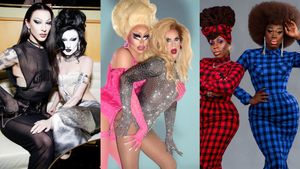A variation of the Gadsden flag -- with the famous coiled snake and words "Don't Tread on Me" overlaid atop the rainbow flag -- hangs in front of a table as Michael Shipley calls to order a biennial meeting of the Outright Libertarians. The meeting, held Sunday evening after a lengthy leadership fight at the Libertarian National Convention in Orlando, Fla., has started later than expected, but a crowd of about three dozen still has gathered for the meeting.
Shipley, a gay man who before the meeting closes will be reelected as chairman of this group within America's third largest political party, wears a shirt with an image of automatic weapons crossed, symbolic of the gun rights stance that drew him into the antigovernment fold. His mission for the group over the next two years is to swell its ranks by building a stronger bridge between Libertarians and the LGBT community as a whole. As with any caucus, the level of power within a party depends on numbers. And the more prominent Outright becomes within the party, the more LGBT individuals will find their way into its ranks.
"A lot of people still don't know how awesome liberty is," Shipley says. "If we can put those in the context of the Libertarian nonaggression principle, if we can explain why this philosophy is so powerful for our community, we can get them across the bridge. And then we say how dismantling the Fed can set us free economically too."
LGBT activists at this convention sincerely believe that as America debates things like bathroom access, self-defense rights, and workplace discrimination, the Libertarian platform will resonate with more people.
Ruth Bennett, a lesbian who ran for governor of Washington in 2004 on a platform supporting marriage equality and legalization of marijuana, proudly notes the Libertarian Party was way ahead on issues even in a state that would be among early adopters of those liberty-minded philosophies. She believes now that the message of independence and individual rights should ring true to a growing number of LGBT voters. "I never understood why a gay people would want a baker that didn't want their business to bake a cake for them," she says. "I don't want someone spitting in my batter. But I also want them, when someone declines their business, to broadcast that information far and wide so I can choose not to patronize that business."
The meeting continues as debate over the use of language like "LGBTQ" in the bylaws ensues. The group ultimately decides to include the less-used "gender and sexual minorities" in its mission statement because that language covers a range of people including gays and lesbians, transgender individuals, polygamists, and sex workers. The term LGBTQ will be used in marketing materials, though, to show to the broader community that the group will adopt the most popular nomenclature of the day. And by evening's end, straight woman Sarah Daggers, a sex worker advocate from Louisiana, will be named outreach coordinator for the caucus.
Shipley believes passionately that more LGBT people should adopt the Libertarian philosophy. He previously worked in Democratic politics, but as a member of minority at risk of hate crimes, he also felt the need to arm himself. He came to the Libertarians through involvement with groups like the Pink Pistols and sees government as an enabler of discrimination instead of a solution. "The state is really the source of these harms," he says.




